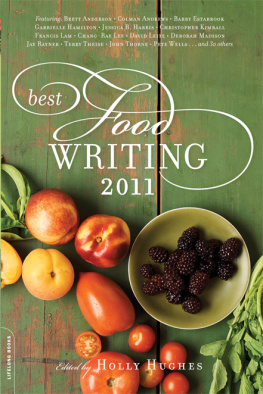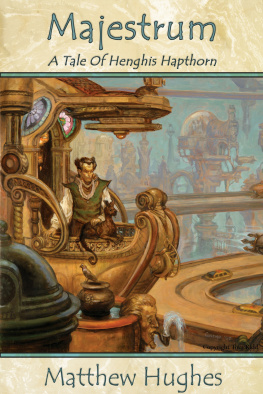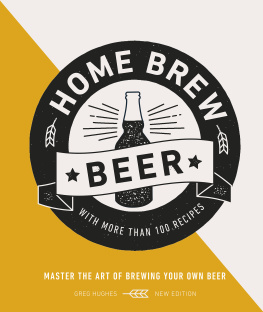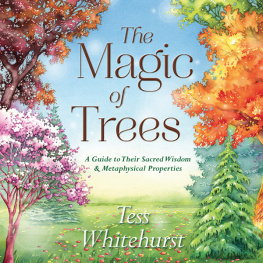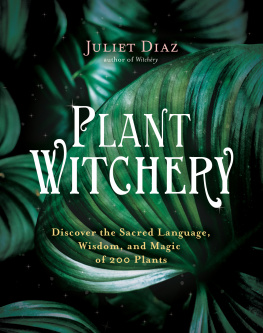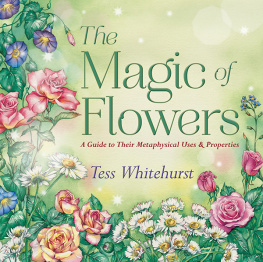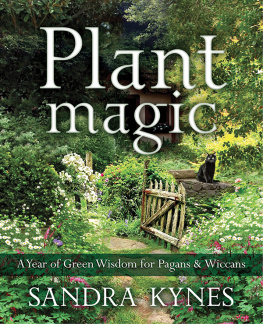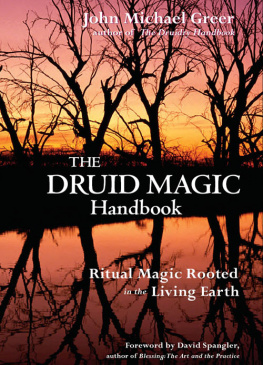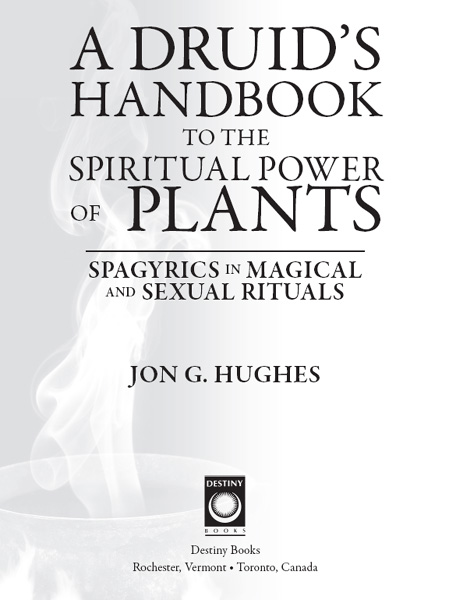
To my family:Yve, my wife, my constant companion and supporter.Peter, whose music and love have been with me all my life.Liz, for her patience and endurance.Sophie, in whom we all invest our future.
INTRODUCTION
In planning the research for this book, I began with the intention of comparing the plant-based preparations, rituals, and magic of the Welsh Druidic tradition with those of the broader and infinitely more documented spiritual traditions practiced all over the world. Before I had progressed very far, I came in contact with the works of ancient and modern alchemists. The part of their work that has been maintained for millennia involves the use of materials from the plant kingdom. This immediately drew my interest. Likewise, my fascination was spurred by the alchemical search for immortality and the involvement with sexual ritual, as both have their place in the Druidic tradition.
For many, the very word alchemy conjures up images of fiery furnaces engaged in the age-old quest to make gold from less valuable ores and metals. Hoping to find a common thread between the Druidic tradition and alchemy, I researched the books and experiments of the Lesser Circulation. The Lesser Circulation deals with the herbal processes of alchemy, as opposed to the much better known Greater Circulation, which relates to the mineral (metallic) realm and its reputation for converting base metals into gold. The latter has no equivalent in the Druidic tradition. Both the Lesser and Greater Circulations also exist as metaphors for the creation of a pure, elevated spirit from the basic, unrefined spirit contained within us all.
Alchemy, to a large extent, involves a range of brutal, intensely forceful processes in its efforts to elevate the substances it employs to ever greater levels of purity. As I continued to explore the tenets of alchemy, I grew more and more convinced that although these harsh methods may have a place in the extraction of ores and the amalgamation of metals, they are wholly inappropriate for the plant kingdom. It also was obvious that they bore little resemblance to the Druidic tradition of gentleness and nurturing taught to me throughout my lifetime as a practicing Druid.
In my quest for a greater understanding of the more subtle aspects of alchemy, I began to see a correspondence between alchemy and the Druidic tradition that at first had eluded me. It was in part based on their practices and partly in the deep, underlying philosophy enshrined in both traditions. My mind became attuned to both conventions and I was able to reconcile the harsher practices of alchemy with the gentler, more sympathetic practices I had been taught within the Druidic tradition.
Although there is to my knowledge no significant convergence of alchemy and Druidic practicestheir histories differ greatly, and, as we shall see, their methods differ dramaticallythere is an underlying accord between the two disciplines and an intriguing harmony between the two philosophies. The result of my realization of this harmonization is an exploration of the use of plant extracts and compounds, derived predominantly from trees and flowers as opposed to herbal extracts, and their use within the Druidic tradition as remedies, elixirs, and magical potions. The following chapters explore the three progressive steps involved in plant magic: the identification and harvesting of appropriate materials, their careful and meticulous preparation, and their ritual application and benefits. As it is my area of expertise, I have focused on the ancient Druidic practice of sex magic to demonstrate the potency of these arcane compounds and rituals.
Writing this book has been a journey of discovery and revelation. By seeking a greater understanding of alchemy and the Druidic tradition, and by questioning my own conditioned understanding, I have arrived at a new point in my relationship with my own belief system. I sincerely hope that in reading this book and becoming involved in some of the practices it reveals, you will achieve a fuller understanding of the world in which we live and the suppressed potential within each one of us.
THE USE OF WELSH LANGUAGE
Much of what is contained in these pages has been handed down through an oral tradition and little, if any, of it has appeared in print before. In fact, the whole of the body of Druidic lore has been maintained solely by an oral tradition. Although this creates an atmosphere of secrecy and mystery, the most profound blanket of secrecy has been laid upon the craft of the Druid not by the selective system of recruiting initiate Druidic priests or priestesses or the personal one-on-one training methodology but by the fact that this oral tradition is maintained exclusively through the use of the Welsh language.
The vast majority of people who read this book will have little, if any, working knowledge of either the modern or the ancient version of Welsh, and while some practitioners like to include elements of arcane or unknown languages in their rituals to create atmosphere and mystique, I believe that understanding takes precedence.
In the process of researching the alchemical aspects of this book, I was confounded on many occasions by the use of ancient languages long since fallen from popular use. Fortunately for me, many of the commentators on these ancient texts have provided translations for most of this strange and unfamiliar language. As the history of alchemy spans such a great period and covers such a wide geographical area, it is inevitable that it has been recorded in a vast range of ancient and modern languages.
I have, therefore, deliberately refrained from using the modern or ancient forms of Welsh in the main text of this book. You will find occasional Welsh words, along with some Irish words, where there are no English equivalents, or where it is necessary to give alternative meanings, as in the names of flowers and trees, for example. I have also included a number of Latin, Greek, and Hebrew words when it may assist the reader to find similar references in other publications.
While it is true that the Welsh language in particular has an enchanting musical sound and that its individual words and phrases have a very powerful and deep meaning, I also believe that these may be translated into English without any serious loss of subtletycertainly with no more loss of meaning than the ancient form being translated into modern, vernacular Welsh.
One of the greatest dangers I have found among my pupils is that when they come up against words that are not part of their everyday vocabulary, and they are unsure of their true meaning, they attempt to build a concept around the word, when the true purpose of the original word was to explain a concept that may have escaped them.
It is imperative that all the members of your Gathering understand completely what is being said and done during your rituals and also throughout their training. The explanation and understanding of the complicated philosophies and methodologies involved is difficult enough without confusing them with unnecessarily obscure language.
A CAUTIONARY NOTE
The contents of Celtic plant magic are based on practical experience and traditional Celtic plant lore. The foundation of both of these elements is the ability to confidently identify the plants to be used and a thorough understanding of the properties and potential effects of the plants that are being employed.
In the days of the ancient Druids there were no alternatives to these magical treatments, but nowadays the situation is reversed and Celtic plant magic is the alternative or complementary therapy to mainstream scientific medicine.


